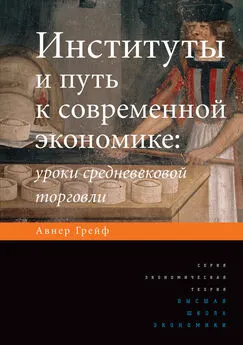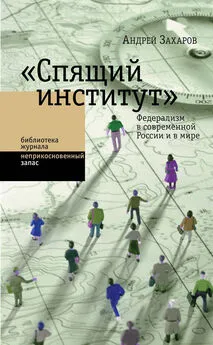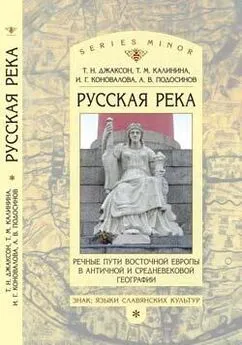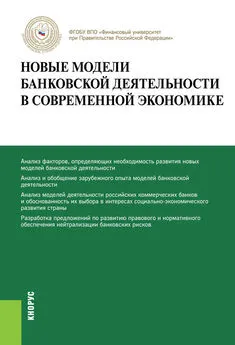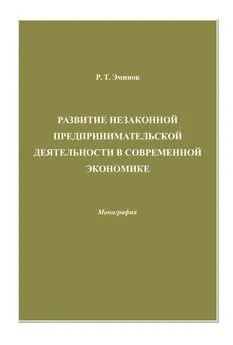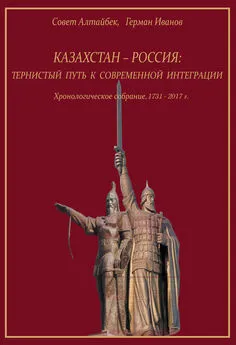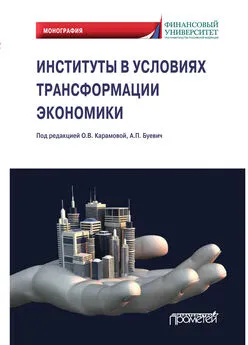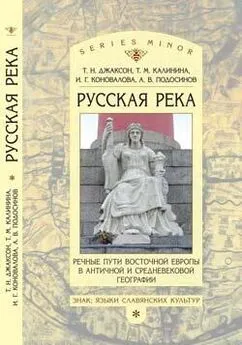Авнер Грейф - Институты и путь к современной экономике. Уроки средневековой торговли
- Название:Институты и путь к современной экономике. Уроки средневековой торговли
- Автор:
- Жанр:
- Издательство:Литагент «Высшая школа экономики»1397944e-cf23-11e0-9959-47117d41cf4b
- Год:2013
- Город:Москва
- ISBN:978-5-7598-0813-8
- Рейтинг:
- Избранное:Добавить в избранное
-
Отзывы:
-
Ваша оценка:
Авнер Грейф - Институты и путь к современной экономике. Уроки средневековой торговли краткое содержание
Принято считать, что существующие различия в экономике, политике и обществе отражают влияние различных институтов. Но среди экономистов, политологов и социологов нет единого мнения о том, что представляют собой институты, какие силы влияют на их сохранение и изменение и как мы можем повлиять на институциональное развитие. Эта междисциплинарная книга предлагает понятие институтов, которое объединяет внешне противоположные направления институционального анализа в социальных науках. В ней используется единый подход к изучению происхождения и сохранения институтов, их изменения и влияния предшествующих институтов на последующие.
Достоинства этого подхода демонстрируются при помощи сравнительных исследований институтов в средневековом европейском и мусульманском мире. Этот сравнительный анализ институциональных оснований рынков и государств и их динамики также способствует пониманию функционирования современных экономик. Он показывает своеобразие европейских институтов и объясняет, как и почему они привели к возникновению современной экономики, поддерживая обезличенный обмен, эффективные государства и использование знаний.
Институты и путь к современной экономике. Уроки средневековой торговли - читать онлайн бесплатно ознакомительный отрывок
Интервал:
Закладка:
Gäachter S., Falk A. Reputation and Reciprocity: Consequences for the Labour Relation // Scandinavian Journal of Economics. 2002. Vol. 104. No. 1. P 1-26.
Galor O., Zeira J. Income-Distribution and Macroeconomics // Review of Economic Studies. 1993. Vol. 60. No. 1. P. 35–52.
Garfinkel H. Studies in Ethnomethodology. Englewood Cliffs, NJ: Prentice-Hall, 1967.
Geanakoplos J., Pearce D., Stacchetti E. Psychological Games and Sequential Rationality // Games and Economic Behavior. 1989. Vol. 1. No. 1. P 60–79.
GhatakM., Guinnane T.W. The Economics of Lending with Joint Liability: Theory and Practice // Journal of Development Economics. 1999. Vol. 60. No. 1. P 195–228.
Ghosh P., Ray D. Cooperation in Community Interaction without Information Flows // Review of Economic Studies. 1996. Vol. 63. No. 3. P 491–519.
Game Theory for Applied Economists. Princeton, NJ: Princeton University Press, 1992.
Game Theory and Garbage Cans: An Introduction to the Economics of Internal Organization / R. Stern and J. Halpern (eds). Debating Rationality: Nonrational Elements of Organizational Decision Making. Chap. 2. Ithaca, NY: ILR Press, 1998.
Gibbons R. Trust in Social Structures: Hobbes and Coase Meet Repeated Games / K. Cook (ed.). Trust in Society, chap. 11. N.Y.: Russell Sage Foundation, 2001.
Gibbons R., Rutten A. Hierarchical Dilemmas: Social Order with Self-Interested Rulers // Working Paper, Cornell University, 1997.
Giddens A. Sociology. L.: Polity Press, 1997.
Gil M. The Tustars, the Family and the Sect. Tel Aviv: Tel Aviv University Press, 1971.
Gil M. The Jews in Sicily under the Muslim Rule in the Light of the Geniza Documents // Unpublished Manuscript. Tel Aviv University, 1983a.
Gil M. Palestine during the First Muslim Period (634-1099) (in Hebrew and Arabic). Vols. 1–3. Tel Aviv: Ministry of Defense Press and Tel Aviv University Press. 1983b.
Gilboa I., Schmeidler D. Theory of Case-Based Decisions. Cambridge: Cambridge University Press, 2001.
Gintis H. Game Theory Evolving. Princeton, NJ: Princeton University Press, 2000.
Giovanni di Guiberto. 1200–1211. Cartolare (in Latin and Italian) / M.W Hall-Cole, R. G. Reinert (eds). Documenti, XVII–XVIII. Turin: Editrice Libraria Italiana, 1939–1940.
Giovanni Scriba. 1154–1164. Cartolare (in Latin and Italian) / Mario Chiaudano and Mattia Moresco (eds). Vols. 1, 2. Turin: S. Lattes & C. Editori, 1935.
Glaeser E.L., Porta R.L., Lopez-de-Silanes F. (eds). Do Institutions Cause Growth? Memo. Harvard University, 2004.
Glaeser EL., Shleifer A. Legal Origin // Quarterly Journal of Economics. 2002. Vol. 117. No. 4. P. 1193–1230.
Goitein S.D. The Beginning of the Karim Merchants and the Character of Their Organization // Journal of Economic and Social History of the Orient. 1957. Vol. 1. No. 175–184.
Goitein S.D. Commercial and Family Partnerships in the Countries of Medieval Islam. Islamic Studies. 1964. Vol. 3. P. 315–337.
Goitein S.D. A Mediterranean Society: Economic Foundations. Los Angeles: University of California Press, 1967.
Goitein S.D. A Mediterranean Society: The Community. Los Angeles: University of California Press, 1971.
Goitein S.D. Letters of Medieval Jewish Traders. Princeton, NJ: Princeton University Press, 1973.
Goitein S.D. A Mediterranean Society: The Family. Los Angeles: University of California Press, 1978.
Goodin R., Klingemann H.-D. (eds). A New Handbook of Political Science. N.Y.: Oxford University Press, 1996.
Goody J. The Development of the Family and Marriage in Europe. Cambridge: Cambridge University Press, 1983.
Gould S.J., Eldredge N. Punctuated Equilibria: The Tempo and Mode of Evolution Reconsidered // Paleobiology. 1977. Vol. 3. P. 115–151.
Grantham G. The Manse, the Manor and the Market: New Perspectives on the Medieval Agricultural Revolution: Memo. McGill University, 1992.
Grantham G. Economic Growth without Causes: A Reexamination of Medieval Economic Growth and Decay. Presented at the Annual Meeting of the American Economic History Association, Tucson, AZ, 1993.
Granovetter M.S. Economic Action, Social Structure, and Embeddedness // American Journal of Sociology. 1985. Vol. 91. No. 3. P. 481–510.
Granovetter M.S. A Theoretical Agenda for Economic Sociology / M. Guillen, R. Collins, P. England (eds). The New Economic Sociology: Developments in an Emerging Field, 35–59. N.Y.: Russell Sage Foundation, 2002.
Gras N.S.B. Business and Capitalism: An Introduction to Business History. N.Y.: F. S. Crofts, 1939.
Green D.P., Shapiro I. Pathologies of Rational Choice Theory. New Haven: Yale University Press, 1994.
Green E., Porter R. Noncooperative Collusion under Imperfect Price Information // Econometrica. 1984. Vol. 52 (Jan.). P. 87–100.
Greif A. Sicilian Jews during the Muslim Period (827-1061) (in Hebrew and Arabic). M.A. Thesis, Tel Aviv University, 1985.
Greif A. Reputation and Coalitions in Medieval Trade: Evidence on the Maghribi Traders // Journal of Economic History. 1989. Vol. 49. No. 4. P. 857–882.
Greif A. Institutions and Commitment in International Trade: Lessons from the Commercial Revolution // American Economic Review. 1992. Vol. 82. No. 2. P. 128–133.
Greif A. Contract Enforceability and Economic Institutions in Early Trade: The Maghribi Traders’ Coalition // American Economic Review. 1993. Vol. 83. No. 3. P 525–548.
Greif A. Cultural Beliefs and the Organization of Society: Historical and Theoretical Reflection on Collectivist and Individualist Societies // Journal of Political Economy. 1994a. Vol. 102. No. 5. P 912–950.
Greif A. Trading Institutions and the Commercial Revolution in Medieval Europe / A. Aganbegyan, O. Bogomolov, M. Kaser (eds). Economics in a Changing World. Proceedings of the Tenth World Congress of the International Economic Association. London: Macmillan, 1994b. Vol. 1. P 115–125.
Greif A. On the Political Foundations of the Late Medieval Commercial Revolution: Genoa during the Twelfth and Thirteenth Centuries // Journal of Economic History. 1994c. Vol. 54. No. 4. P 271–287.
Greif A. Political Organizations, Social Structures, and Institutional Success: Reflections from Genoa and Venice during the Commercial Revolution // Journal of Institutional and Theoretical Economics. 1995. Vol. 151. No. 4. P. 734–740.
Greif A. A Comment on the “Evolution of Economic Systems: The Case of Japan” by Tetsuji Okazaki and Masahiro Okuno-Fujiwara / Y. Hayami, M. Aoki (eds). The Institutional Foundation of Economic Development in East Asia, 522—6. London: Macmillan, 1996a.
Greif A. Microtheory and Recent Developments in the Study of Economic Institutions through Economic History // Working Paper. No. 96-001. Stanford University, Department of Economics, 1996b.
Greif A. Microtheory and Recent Developments in the Study of Economic Institutions through Economic History / D.M. Kreps, K.F. Wallis (eds). Advances in Economic Theory. Cambridge: Cambridge University Press, 1997a. Vol. 2. P 79—113.
Greif A. Institutional Structure and Economic Development: Economic History and the New Institutionalism / J.N. Drobak, J. Nye (eds). Frontiers of the New Institutional Economics. Volume in honor of Douglass C. North. N.Y.: Academic Press, 1997b. P 57–94.
Greif A. Cultural Beliefs as a Common Resource in an Integrating World: An Example from the Theory and History of Collectivist and Individualist Societies / P Das-gupta, K.-G. Maeler, A. Vercelli (eds). The Economics of Transnational Commons. Oxford: Clarendon Press. 1997c. P 238–296.
Greif A. Contracting, Enforcement, and Efficiency: Economics beyond the Law / M. Bruno, B. Pleskovic (eds). Annual World Bank Conference on Development Economics. Washington, DC: World Bank. 1997d. P 239–266.
Greif A. Historical and Comparative Institutional Analysis // American Economic Review. 1998a. Vol. 88. No. 2. P 80–84.
Greif A. Historical Institutional Analysis: Game Theory and Non-market Self– Enforcing Institutions during the Late Medieval Period (in French) // Annales. 1998b. No. 3 (May – June). P. 597–633.
Greif A. Self-Enforcing Political Systems and Economic Growth: Late Medieval Genoa / R.H. Bates, A. Greif, M. Levi (eds). Analytic Narratives. Princeton, NJ: Princeton University Press. 1998c. P. 23–63.
Greif A. The Fundamental Problem of Exchange: A Research Agenda in Historical Institutional Analysis // Review of European Economic History. 2000. Vol. 4. No. 3. P 251–284.
Greif A. Impersonal Exchange and the Origin of Markets: From the Community Responsibility System to Individual Legal Responsibility in Pre-modern Europe / M. Aoki, Y. Hayami (eds). Communities and Markets in Economic Development. Oxford: Oxford University Press. 2001. P 3-41.
Greif A. The Islamic Equilibrium: Legitimacy and Political, Social, and Economic Outcomes // Working Paper. Stanford University, 2002.
Greif A. State Building and Commercial Expansion: Genoa’s Experience: Memo. Stanford University, 2004a.
Greif A. Commitment, Coercion, and Markets: The Nature and Dynamics of Institutions Supporting Exchange / C. Menard, M.M. Shirley (eds), The Handbook for New Institutional Economics. Norwell, MA: Kluwer Academic Publishers, 2004b.
Greif A. “Impersonal Exchange without Impartial Law: The Community Responsibility System” // Chicago Journal of International Law. 2004c. Vol. 5. No. 1. P 109–138.
Greif A., Kandel E. Contract Enforcement Institutions: Historical Perspective and Current Status in Russia / E.P Lazear (ed.). Economic Transition in Eastern Europe and Russia: Realities of Reform. Stanford, CA: Hoover Institution Press. 1995. P 291–321.
Greif A., Laitin D. A Theory of Endogenous Institutional Change // American Political Science Review. 2004. Vol. 98. No. 4. P 1-20.
Greif A., Milgrom P.R., Weingast B.R. Coordination, Commitment and Enforcement: The Case of the Merchant Gild // Journal of Political Economy. 1994. Vol. 102. No. 4. P 745–776.
Gross C. Gild Merchant. Oxford: Clarendon Press, 1890.
Grossman G.M., Helpman E. Special Interest Politics. Cambridge, MA: MIT Press, 2002a.
Grossman G.M., Helpman E. Integration versus Outsourcing in Industry Equilibrium // Quarterly Journal of Economics. 2002b. Vol. 117. No. 85-120.
Grossman G.M., Helpman E. Outsourcing in a Global Economy // Review of Economic Studies. 2003. Vol. 1. P 300–316.
Grossman H., Kim M. Swords or Plowshares? A Theory of the Security of Claims to Property // Journal of Political Economy. 1995. Vol. 103. No. 6. P 1275–1288.
Grossman S.J., Hart O.D. The Cost and Benefits of Ownership: A Theory of Vertical and Lateral Integration // Journal of Political Economy. 1986. Vol. 94. No. 4. P 691–719.
Guglielmo C. 1190-2. Carlolare (in Latin and Italian) / M.W Hall, H.C. Krueger, R.L. Reynolds (eds). Notai Liguri Del Sec. XII. Turin: Editrice Libraria Italiana, 1938.
Guinnane T.W. Cooperatives as Information Machines: German Rural Credit Cooperatives. Discussion Papers, 1883–1914. University of Copenhagen, Department of Economics. 2001. P 97–20.
Читать дальшеИнтервал:
Закладка:
